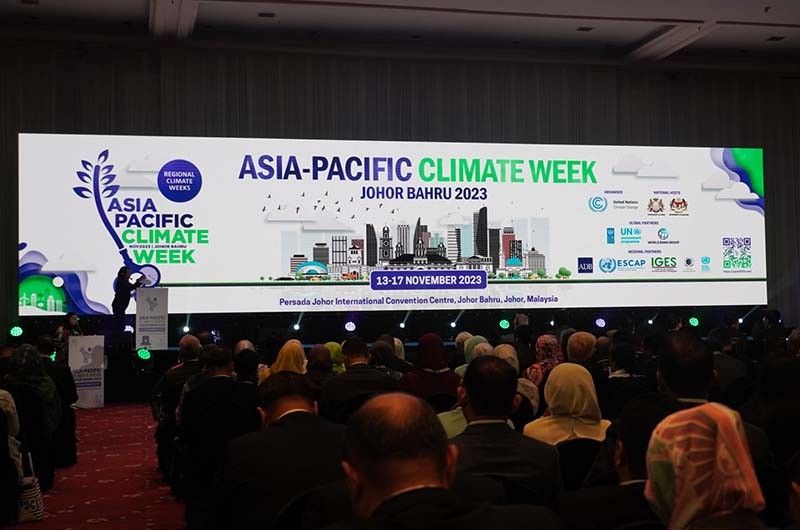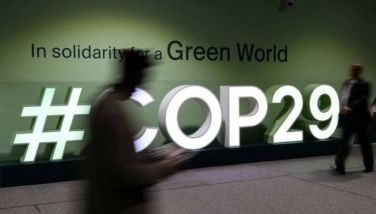Active participation in COP28 urged as Asia-Pacific Climate Week wraps up

JOHOR BAHRU, Malaysia — This year’s Asia-Pacific Climate Week concluded Friday after five days of discussion on the region’s climate priorities, with the United Nations urging participants to play an active role in the upcoming COP28 negotiations.
Around 3,000 participants which included policymakers, experts, and members of civil society organizations gathered in the southern Malaysian City of Johor Bahru to deliberate on solutions to the climate crisis as well as align the region’s priorities ahead of the COP28 climate talks in Dubai later this month.
Donald Cooper, the director of the United Nations Framework Convention on Climate Change’s transparency division, called on delegates to actively participate in the “global stocktake” assessing the world’s progress toward the target of limiting global warming to 1.5 degrees Celsius.
A technical report released in September said that the world was off track on its pledge to curb global warming.
“We want to hit that curve that puts us below 1.5. The global stocktake is where you are going to establish what is needed and how we are going to do it,” Cooper said during the closing ceremony.
“Everyone will take their share [of the commitments] to make sure we hit that curve. So be active in the global stocktake, at the Dubai conference. And make sure that those 80,000 people who are going to turn up there all end up heading in your direction,” he added.
Discussions at the climate week covered decarbonizing energy systems and industries, creating more sustainable cities, settlements, infrastructure and transportation, conserving biodiversity and ecosystems, protecting human health, and greening economies.
“As we stand at the crossroads of environmental crisis and opportunity, I trust APCW 2023 here in Johor Bahru has served as an impactful platform for all of us to strengthen regional cooperation, accelerate climate action, and embrace transformative potential of green technologies and sustainable practices,” Johor investment, trade, and consumer affairs committee chair Lee Ting Han said.
Calls for inclusivity
UNFCCC’s Cooper lauded the participation of various groups in the week-long event.
“From the indigenous peoples, youth, gender, it has been remarkable to see them all included, and included at a high level,” he said.
However, indigenous peoples attending APCW were not provided spaces in the opening and closing plenary of the climate week, as well as in ministerial meetings, according to Grace Balawag, deputy coordinator of indigenous peoples’ organizations Tebtebba.
In a statement delivered at APCW Thursday, the International Indigenous Peoples Forum on Climate stressed that they should be treated as “key partners” in climate change dialogues, not merely beneficiaries.
Jit Sohal, the regional climate manager of Health Care Without Harm Southeast Asia, said that there were few health-focused events at APCW.
“But that only means we need to work harder: how do we make sure that health is central to all of these discussions because health is important to everyone,” she said.
APCW 2023 brought this year's series of regional climate weeks to a close, following the Africa Climate Week in Kenya, the Middle East and North Africa Climate Week in Saudi Arabia; and the Latin America and the Caribbean Climate Week in Panama.
--
This story was supported by Climate Tracker Asia.
- Latest






























